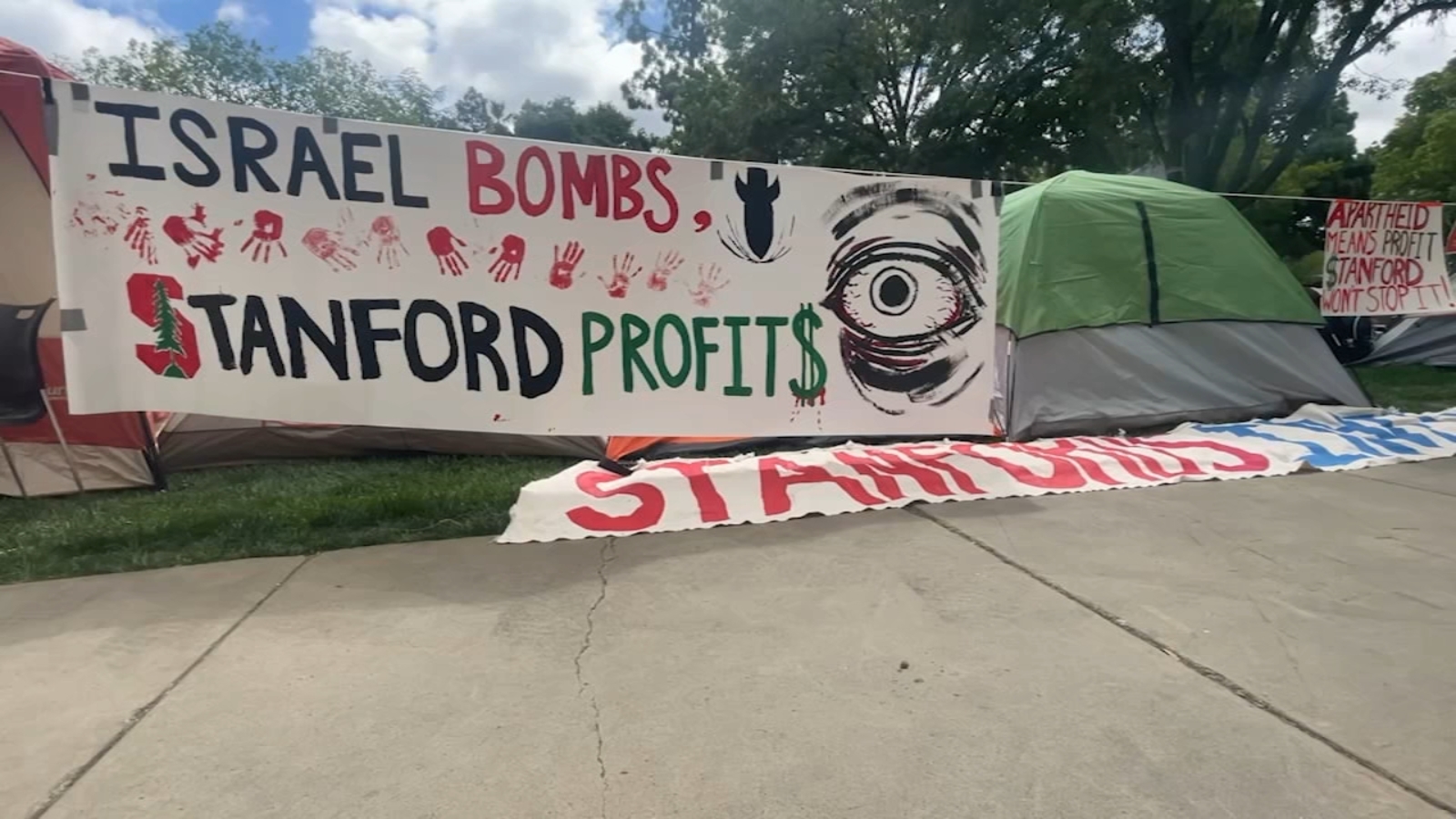Stanford University has warned students participating in pro-Palestine protests of potential consequences for engaging in “camp-in demonstrations.”

Universities nationwide are responding to student-led pro-Palestine protests on their campuses.
At USC, administrators have opted to cancel commencement ceremonies due to concerns over safety. Meanwhile, institutions like Stanford are cautioning students about potential repercussions for participating in what are referred to as “camp-in demonstrations.”
The number of protesters at White Plaza on the Stanford campus has increased significantly in the past three days, with 23 tents now set up despite the university’s warning that students camping overnight could face expulsion.
Participants assert that their aim is to advocate for peace in Palestine.

“We are standing against the ongoing genocide, which has persisted for over 200 days, and we are advocating for peace and a cessation of hostilities,” explained Ines, one of the student demonstrators.
In addition to calls for peace, protesters are urging Stanford University to divest from companies such as Chevron, HP, and Lockheed Martin, which they allege are providing support for military operations against the Palestinian population.
“These companies have affiliations with Israel. For instance, Lockheed Martin supplies weaponry and is involved in the transportation of arms intended for use against Palestinians,” Ines stated.
The push for action is receiving widespread support throughout the campus. Preliminary results from a recent student election indicate that over 70% of undergraduate and graduate students favor the university issuing a statement supporting divestment.
Meanwhile, the university has been distributing letters and sending emails to students, warning them that camping overnight violates university policies and could result in suspension.
As of Monday, the university had not confirmed whether any protesting students had been suspended or expelled.
Following protests, USC called off its main commencement ceremony due to security concerns.
Similarly, Cal Poly Humboldt closed its campus and shifted to online learning after students barricaded themselves inside two buildings last week.
“I think other universities will resort to remote learning to manage protests on campus, but it strikes me as an odd response. This is not a snowstorm, and there is no violence,” remarked Omar Wasow, assistant professor of political science at UC Berkeley.
At Sonoma State, protesters plan to continue camping out for a third night as they demand an end to violence in Gaza.
In Berkeley, protesting students continue to occupy tents in front of Sproul Hall, joining with students from campuses nationwide in the hope that their solidarity will amplify their message and bring about change.

